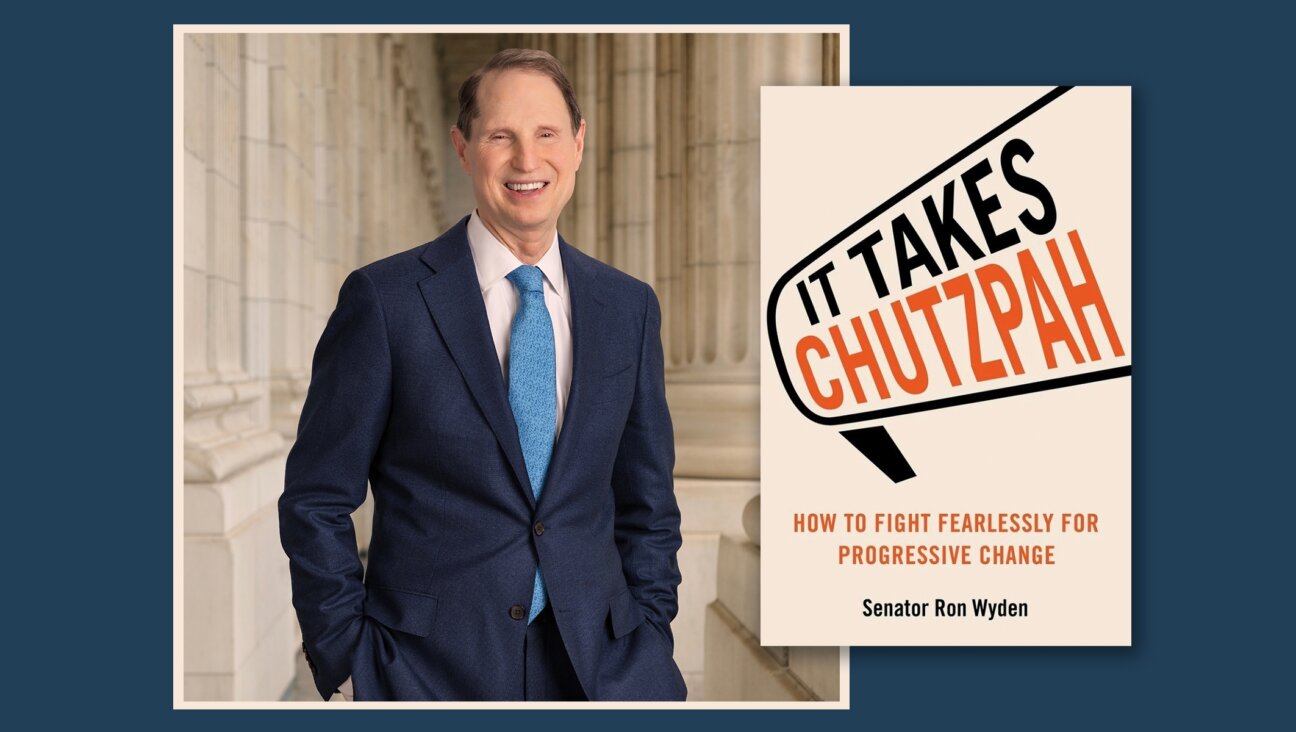Israel’s Mixed Cities on Edge After Riots
Lod, Israel — Lod is on edge.
In the wake of the wild rioting between Arabs and Jews during Yom Kippur in the northern city of Acre, locals fear that Lod — a city of 75,000 located just southwest of Tel Aviv — could be the next mixed city where relations turn violent.
Acre was considered a model of coexistence before violence overtook the city from October 8-12. The clashes resulted in damage to 50 Jewish-owned shops and 150 Jewish-owned cars, along with 11 cases of arson at Arab homes.
Of course, Jewish-Arab violence is nothing new in the Palestinian territories and Jerusalem, but in the scattered Israeli cities where Jews and Arabs have co-existed, the Acre violence broke an uneasy calm.
“The riots served as a very serious warning,” Tel Aviv University urban geographer Izhak Schnell told the Forward. “They were a sign that there are very deep tensions across mixed cities between Jews and Arabs.”
Wounds are still raw in Acre, but experts say that calm will likely hold there. The local Jews and Arabs both have strong leaders who moved to quell the tension, and there is a common reliance on tourist trade in the picturesque day-trip spot.
But Jewish-Arab tensions are now surfacing elsewhere. On October 15, just three days after the Acre violence subsided, the fallout was felt in Tel Aviv, a largely Jewish city with a small Arab minority. Molotov cocktails were thrown into two apartments. Seven Jewish men were arrested after those attacks. Police said they men acted out of racial motives and on the back of the Acre violence.
But while these acts of violence were viewed as isolated incidents, residents of Lod said they believe that any trigger here could ignite hostilities more fierce than Acre’s. The economic deprivation among residents — two thirds Jewish, one third Arab — makes it “the most likely place to explode,” according to Haifa University geographer Arnon Golan, the country’s leading expert on mixed cities.
Lod resident Maha El-Nakib, an Arab social worker and mother of three, told the Forward: “I’m really afraid violence will take place here.”
The term mixed city is often used in Israel to refer to cities where Jews and Arab-Israelis live side by side. Even applying the phrase liberally, mixed cities are the exception rather than the rule in Israel, inhabited by less than 10% of the population.
In the last year, tensions have been brewing. The clearest example came in March when Land Day, the annual protest against alleged appropriations of Arab land, was marked in an Arab-Jewish city for the first time since the protest was instituted in 1976. That demonstration took place in Jaffa, where Arab residents claim they are being driven out so that the area can be developed for wealthy Jews.
But the dynamic in Lod is more complex than in other mixed cities. A fifth of the 75,000 people who live there do not exist as far as the municipality is concerned. They are Bedouins, whose families arrived in Lod in the early 1980s, after being moved off publicly-owned land in the Negev to make way for military facilities.
As they pitched camp — and subsequently built houses on publicly-owned land — their dwellings were deemed illegal. The Bedouins are allocated almost no public services, such as trash collection, running water and sewage disposal. Demolition of homes by the municipality is common.
“There is no provision for us here, and as a result there is definitely more tension towards Jews than in Acre,” said Hassan Azbarga, a father of seven, at his home, an illegal structure that abuts a ditch holding the neighbourhood sewage. “We wonder why Israelis get all these services but we get nothing.”
Azbarga believes that his community is a forgotten cause among the Middle East’s Arabs — even the Islamist movements do not enter.
A five-minute drive away, Maha El-Nakib, who lives on the land where her family has farmed for 700 years, said that her friends have been discussing the prospects for their city non-stop since the Acre riots. “My friends say that here Arabs are stronger, have more weapons, and predict that violence would be worse than in Acre.”
“There, the Arabs have something to lose — livelihoods, futures,” El-Nakib added. “Here, many have nothing to lose, and no reason to stop.”
On El-Nakib’s family’s land, there are 14 homes for different branches of the family. Most homes are built illegally due to the municipalities’ refusal to grant planning permission.
The municipality’s position is that Arab families are building on land that is designated only for agricultural use. The municipality says the Arabs should move to residential developments, which the families say is impossible due to their finances. However, officials do concede that something needs to be done for the Bedouins.
“We know it’s not possible just to knock it [the Bedouin area] all down,” municipality spokesman Yoram Ben-Aroch told the Forward. “We will institute a program whereby residents there, if they agree to pay municipal tax, will have their homes legalized and will receive services.”
Ben-Aroch said it will be six months to a year before this option is on the table.
Aside from these running tensions, there is a particular bone of contention at the moment. Lod’s Ramat Eshkol neighborhood is regarded as one of Israel’s most deprived, and often dubbed the country’s crime capital. A three-bedroom apartment sells for just $20,000.
The 1,300-apartment neighborhood was built in the 1960s to house immigrants who were living in transit camps. During the next two decades, it became heavily Arab. Then in the 1990s, Jewish immigrants from Ethiopia were housed there, giving rise to racial tensions that have often resulted in minor clashes.
The Arab community in Ramat Eshkol has long complained that when it became a majority in the neighborhood, and the Jewish school emptied out, the school was closed down instead of being turned into an Arab-sector school. Last month, the school opened up as a right-wing yeshiva.
The municipality is open about its motives. Though it insists that it nurtures peaceful coexistence and does not discriminate against Arabs, it wants Lod to become “a more Jewish town,” said Ben-Aroch.
“We need to strengthen the Jewish character of Lod and religious people and Zionists have a big part to play in this strengthening,” he added.
But even in Lod’s Jewish community, the fear of clashes exists.
“Jews here do fear violence, and if provoked with violence, they would react with violence,” said Aviv Wasserman, an activist who earlier this year set up the Lod Foundation, an organization working to promote community cohesion.





















